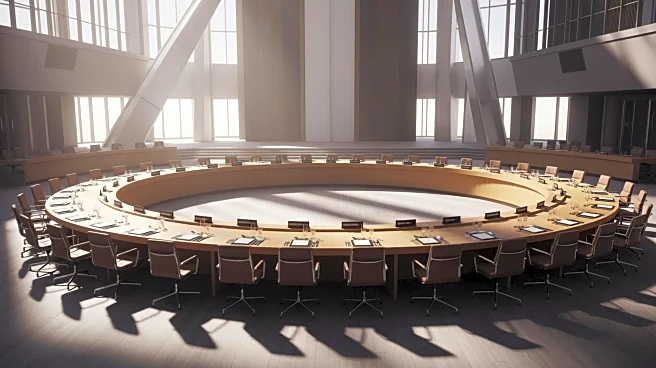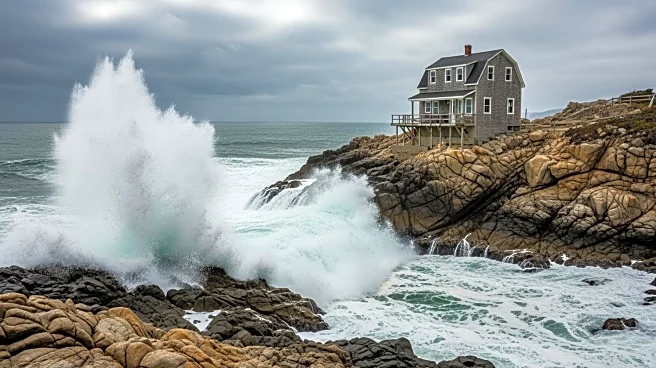What's Happening?
The first Group of 20 (G20) summit held in Africa has commenced in Johannesburg, South Africa, with an ambitious agenda aimed at addressing issues affecting the world's poorest nations. The summit, however,
is taking place without the participation of the United States, following President Trump's decision to boycott the event. President Trump cited South Africa's alleged racist policies against its Afrikaner white minority as the reason for the boycott. Despite the absence of the U.S., leaders from the world's richest and emerging economies are gathering to discuss priorities such as climate disaster recovery, foreign debt reduction, green energy transition, and the utilization of critical mineral wealth. The summit aims to foster consensus among its members, which include major economies like Russia, China, India, and the European Union. The G20, established in 1999, represents a significant portion of the global economy and trade, but often struggles to reach binding resolutions due to diverse member interests.
Why It's Important?
The U.S. boycott of the G20 summit highlights ongoing diplomatic tensions between the United States and South Africa, potentially impacting international relations and cooperation on global issues. The absence of the world's largest economy could undermine efforts to address critical challenges such as climate change and economic inequality, which require collective action. The summit's outcomes may influence future international policies and agreements, particularly as the U.S. is set to assume the G20 presidency. The situation underscores the complexities of global governance, where geopolitical dynamics can affect the ability to achieve consensus on pressing global issues.
What's Next?
As the summit progresses, the focus will be on whether the remaining G20 members can reach a consensus on key issues without U.S. participation. South African President Cyril Ramaphosa has vowed to issue a declaration from all present members, despite U.S. pressure to avoid a formal leaders' declaration. The U.S. will officially take over the G20 presidency at the end of the summit, which may shift the bloc's focus under President Trump's administration. The diplomatic rift between the U.S. and South Africa may continue to influence future interactions and negotiations within the G20 framework.










